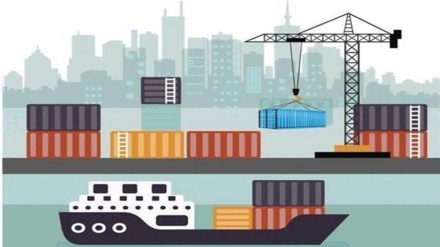The government will no doubt be in a better position to fast-track broader, more ambitious free trade agreements (FTAs) with the European Union and Indo-Pacific region—that entail regulatory policy reform, environment standards, intellectual property rights protection and labour rights—if important stakeholders like India Inc and farmers are on board. The leading business chambers like the CII and FICCI have welcomed new-age FTAs and are working with the government to ensure that while negotiating broader issues, the genuine interests of industry are preserved with the necessary safeguards in place. The government is urging industry to get ready for the EU’s carbon tax that will be imposed on products like iron and steel and aluminium with carbon emissions higher than the prescribed threshold from January 1, 2026, according to a report in FE. Industry’s views have also been sought on the US’s proposal which seeks advance notices on tariff changes and export restrictions under the supply chain pillar of the Indo-Pacific Economic Framework. IPEF has four pillars: trade, supply chains, clean economy and fair economy. India has opted out of the trade pillar but the government is giving “serious consideration” to engaging in discussions on this pillar. Industry’s support will strengthen its hand in inking an FTA with the EU and participating in the IPEF.
Indian industry has been ambivalent on the FTAs signed so far due to the lack of a level playing field amidst concerns that major trading partners like China can inundate the domestic market with cheaper steel, chemicals and electrical goods, thanks to surplus capacities and non-transparent subsidies. For such reasons, India opted out of the Sino-centric Regional Comprehensive Economic Partnership. But all of that is history now as industry realizes that engaging with mega regional trade groupings is inevitable as adverse headwinds are buffeting global trade. On the EU’s carbon tax, industry would ideally prefer an exemption from this tariff. The government, too, has indicated that efforts will be made for a legitimate waiver for sections of industry as the tax impact on India’s exports to the EU is substantial at 20- 30%. Developing countries like India are at a disadvantage as they have limited capabilities to fulfill carbon emission requirements. To help reduce the burden on industry, the government will press the EU on mutual recognition of certification on emissions and recognition of its carbon credit trading system, which is under preparation. Industry can also do with generous state-funding to decarbonise and transition to greener forms of production. But that is a tall order as even the UK has not adequately supported Tata Steel’s steelworks at Port Talbot to decarbonise, with the chair of the company bemoaning the need for a level playing field to compete with EU rivals.
Negotiating ambitious trading arrangements in a world that is fragmenting into powerful regional blocs cannot be done without stakeholder support. The government also needs to have a more open trading regime with lower tariffs and fewer export restrictions to attract supply chains that are decoupling from China. While India has problems with rejoining RCEP, it has relatively greater comfort levels in dealing with the US. Although the IPEF is only a bloc-in-the-making, the relatively greater attractions for India are that its two-way trade with the 13 individual members is similar to that of RCEP but with a much smaller trade deficit.
